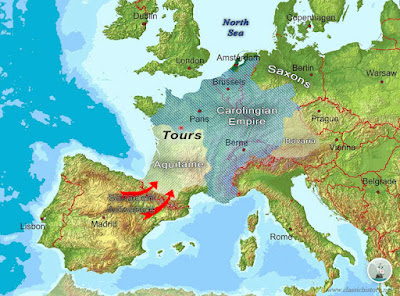Many different plants could provide these rushes, but a common one was the Acorus calamus, pictured here. To the Middle Ages it was "Sweet Flag," although it had many other names (since it grows on every continent except South America and Antarctica). The leaves are flat blades that can grow to a height of 79 inches, and emit a pleasant odor when crushed.
The use of Sweet Flag did not start in the Middle Ages. A papyrus dating to 1300BCE mentions it for use in perfumes. But rushes on the floor are thought of now as a medieval European practice. Was that practical?
Think of a pile of long-bladed plants strewn all over a dirt or stone floor. Sure, when crushed they emit a sweet aroma, but how high-stepping would you have to be in your own home to crush them and not have them catching on your feet and ankles? How deeply were they spread? Wouldn't they also provide an environment for vermin?
In a castle, the situation would be worse: high-born ladies in long gowns walking across rushes "strewn" about? The front of your floor-length gown would create a pile-up of rushes. Where's the sense in that? It's one thing to deal with it in a church which you visit for a short time once or twice each week, but in day-to-day living?
The Dutch philosopher Erasmus (1466 - 1536) makes the perils of rush floors clear. He lived in England for 15 years and complained about his time as a professor at Queens' College, Cambridge, for the lack of good wine. He wrote about England:
The [floors] are, in general, laid with white clay, and are covered with rushes, occasionally renewed, but so imperfectly that the bottom layer is left undisturbed, sometimes for twenty years, harbouring expectoration, vomiting, the leakage of dogs and men, ale droppings, scraps of fish, and other abominations not fit to be mentioned. Whenever the weather changes a vapour is exhaled, which I consider very detrimental to health. I may add that England is not only everywhere surrounded by sea, but is, in many places, swampy and marshy, intersected by salt rivers, to say nothing of salt provisions, in which the common people take so much delight I am confident the island would be much more salubrious if the use of rushes were abandoned, and if the rooms were built in such a way as to be exposed to the sky on two or three sides, and all the windows so built as to be opened or closed at once, and so completely closed as not to admit the foul air through chinks; for as it is beneficial to health to admit the air, so it is equally beneficial at times to exclude it.
I have to assume that his experience of rush floors was limited. Here he describes (I assume) a lower-class household (of which there were many, to be sure), but his rooms at Cambridge would not be like this, nor a well-to-do household that could afford the regular refreshing of rushes. We cannot argue with an eyewitness, but his experience of rushes might not be universal.
There's another theory; I will, however, string this discussion of rushes along to a third day, and present a picture of a much more efficient use of rushes and tell you where you can still get them for your floors today. See you here tomorrow.





























